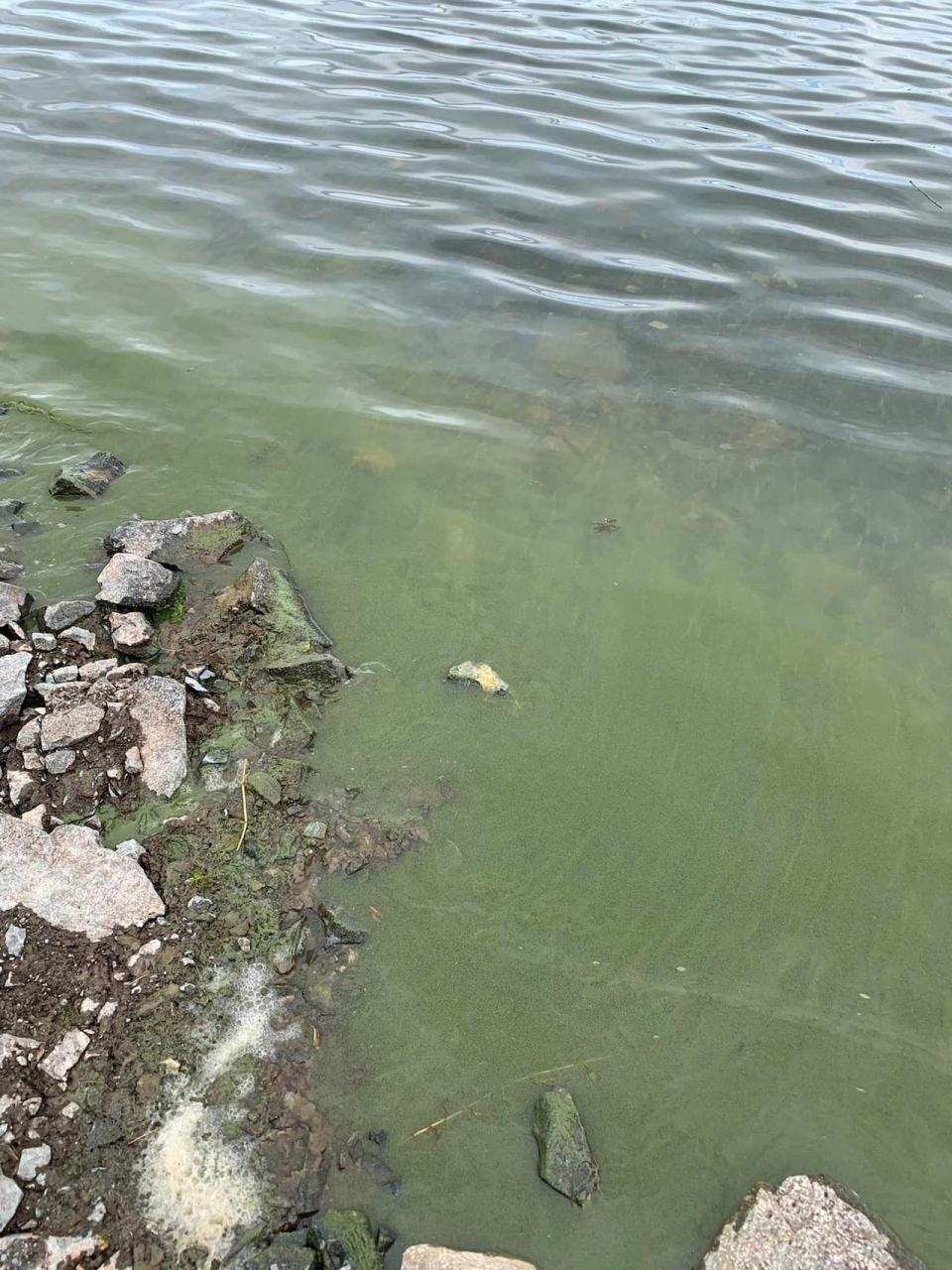Kim Harrower was strolling her 12-year-old Labrador Retriever along the Rotary Boardwalk in Yellowknife on Tuesday when she discovered something uncommon on the coastline.
“I saw this kind of blue-green stuff near the waterline, and it looked like paint… and I was a bit concerned it could be a chemical that my dog shouldn’t be near,” Harrower stated.
Harrower really did not report it yet later on discovered a Facebook article from the N.W.T.’s division of Environment and Climate Change (ECC) concerning a cyanobacterial blossom, or turquoise algae, in Great Slave Lake.
The division claims cyanobacteria take place normally in the N.W.T., and can multiply in specific problems and develop blossoms that can launch contaminants that are possibly damaging to pets and people.


Harrower with her canine. (Picture sent by Kim Harrower)
Jeffrey Cederwall, a water high quality researcher with the division, stated ECC and the Canadian Coast Guard accumulated examples for screening from some areas.
“Spottings varied between Rotary Parks at the Dettah ice road entrance, along Rotary Park, through to the Old Town public boat launch, and up to the Latham Islands in the narrows,” Cederwall stated.
Cederwall claims they have not yet determined prospective contaminants.
This isn’t the first time local residents have seen such blooms Two years back, citizen Bonnie Lee saw a comparable blue algae in Yellowknife Bay nearTin Can Hill Lee stated she was surprised to see lengthy hairs of turquoise material along the coastline.
“My dog was in that water and drank some of it, but thankfully nothing happened to her later,” Lee stated.


Bonnie Hill saw an environment-friendly material near Tin Can Hill 2 years back. (Picture sent by Bonnie Hill)
Cederwall suggests individuals to prevent alcohol consumption or swimming in the water, and to be careful with animals.
“Dogs might not see that same area as a potential risk and might drink the water… Pets can be at a higher risk,” Cederwall stated.
Cederwall includes that such algal blossoms are coming to be much more usual in the N.W.T. as a result of environment modification, warmer water, and often low tide degrees
“If you see thick scum that looks like pea soup or spilled paint, that’s where there is a higher potential risk,” Cederwall stated.
He anticipates laboratory lead to a couple of days. He claims such algal blossoms might possibly take place once again till mid-September





